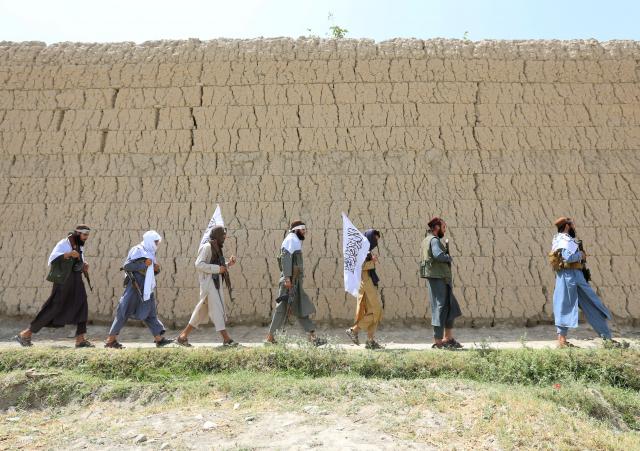KABUL (Reuters) – The Afghan Taliban said their three-day Eid ceasefire, which ends on Sunday, proved the unity of their movement and its “wide national support” as the presidential palace extended its own ceasefire with the militants by 10 days.
Taliban fighters headed into cities across Afghanistan over the weekend as they celebrated their Eid cessation of hostilities with feasts, hugs and selfies, raising questions about what happens when their ceasefire ends at midnight (1930 GMT) on Sunday.
“Mujahideen throughout the country are ordered to continue their operations against the foreign invaders and their internal puppets as before,” they said in a statement.
“The announcement (of the ceasefire), implementation and the wide national support and welcome of the Mujahideen by the people proves that the demands of the Islamic Emirate and the nation are identical – all want the withdrawal of foreign invaders and establishment of an Islamic government,” they said.
“…Our enemies used to propagate that 20 different groups operate against them in Afghanistan or that the Islamic Emirate is not cohesive and unified. But it has now become abundantly clear to everyone that this assertion is baseless…”
President Ashraf Ghani said on Saturday he would extend the government ceasefire beyond June 20 and on Sunday the presidential office said it would be extended by 10 days.
Some have criticized his move, which allowed the Taliban to flow into cities across the country, though the militants said they would withdraw by sunset on Sunday.
“I have seen several Taliban vehicles and motorcycles leaving the city today in the afternoon,” Sohrab Qaderi, provincial council member of Nangarhar province in the east, told Reuters.
Ghani had committed “a grave mistake” by allowing Taliban fighters to enter government-controlled areas, said Amarullah Saleh, a politician and former head of the National Directorate of Security.
“We don’t have mechanisms in place to mitigate the breach of ceasefire by the Taliban,” Saleh told Reuters.
Members of parliament opposing Ghani’s move said he had not consulted politicians and would be left with no recourse if the Taliban rejected his impromptu request.
A senior Western diplomat in Kabul earlier said Ghani’s decision was “a bold move” but questioned what happens if the Taliban do not extend their halt in hostilities against government forces.
“The consequences could be disastrous,” he said.
A suicide bombing in Jalalabad, close to the governor’s office in Nangarhar province, killed at least 18 people on Sunday and wounded scores, an official and doctor said.
No group immediately claimed responsibility.
A car bomb killed 36 people at a gathering of Taliban and Afghan armed forces in the same province on Saturday. Islamic State, not covered by the government ceasefire, claimed responsibility for that attack.




